Plan your 2025 trip with this Thailand travel guide — top places to visit, where to stay, what to eat, and tips for tourists & digital nomads.
Thailand has long been a favorite for travelers from around the world — and in 2025, it’s even easier to explore with new digital visa options, co-living spaces, and more accessible travel infrastructure. Whether you’re a first-timer, a returning tourist, or a digital nomad seeking a base in Southeast Asia, this Thailand travel guide covers everything you need to plan your trip: from where to go and what to eat to how to get around and where to stay.
Table of Contents
- Where to Go in Thailand
- Where to Stay in Thailand
- What to Eat in Thailand
- Getting Around Thailand
- Thailand for Digital Nomads
- Packing Tips & Local Etiquette for Thailand
- FAQ: Thailand Travel Tips for 2025
🗺️ 1. Where to Go in Thailand
Thailand is diverse — one moment you're wandering through ancient temples, and the next you're chilling on a beach. Here are key regions to include on your itinerary:
📍 Bangkok
The bustling capital is your entry point to Thai culture and chaos — in the best way possible. Visit iconic temples like Wat Arun and Wat Pho, explore the Grand Palace, and dive into vibrant night markets like Chatuchak.
I have included a Google Maps list with all the places I have mentioned in this blog at the end of this blog.
📍 Chiang Mai & Mueang Chiang Rai (North)
Known for a slower pace and lush mountain views, Chiang Mai is perfect for digital nomads, wellness seekers, and temple lovers. Mueang Chiang Rai, just a few hours away, is a popular city for its temples, cold weather and greenery.
Read more about Chiang Mai from my blog on Top 10 Must-Visit Attractions in Chiang Mai.
📍 Thai Islands
- Koh Phangan – More than just Full Moon Parties. The island has wellness retreats, great cafes, and co-working hubs.
- Koh Tao – A diving paradise.
- Koh Lanta – A chill island with beautiful beaches and nomad-friendly vibes.
- Phuket – The largest island, with everything from luxury resorts to bustling nightlife.
📍 Cultural Towns
- Ayutthaya – A UNESCO site filled with ancient ruins and history.
- Sukhothai – The birthplace of Thai civilization.
- Chiang Rai – Home to the stunning White Temple and nearby Golden Triangle region. (Same one I mentioned before)
🌐 Tip: Use Google Maps to mark your ideal route and cluster destinations based on north, central, and southern regions.
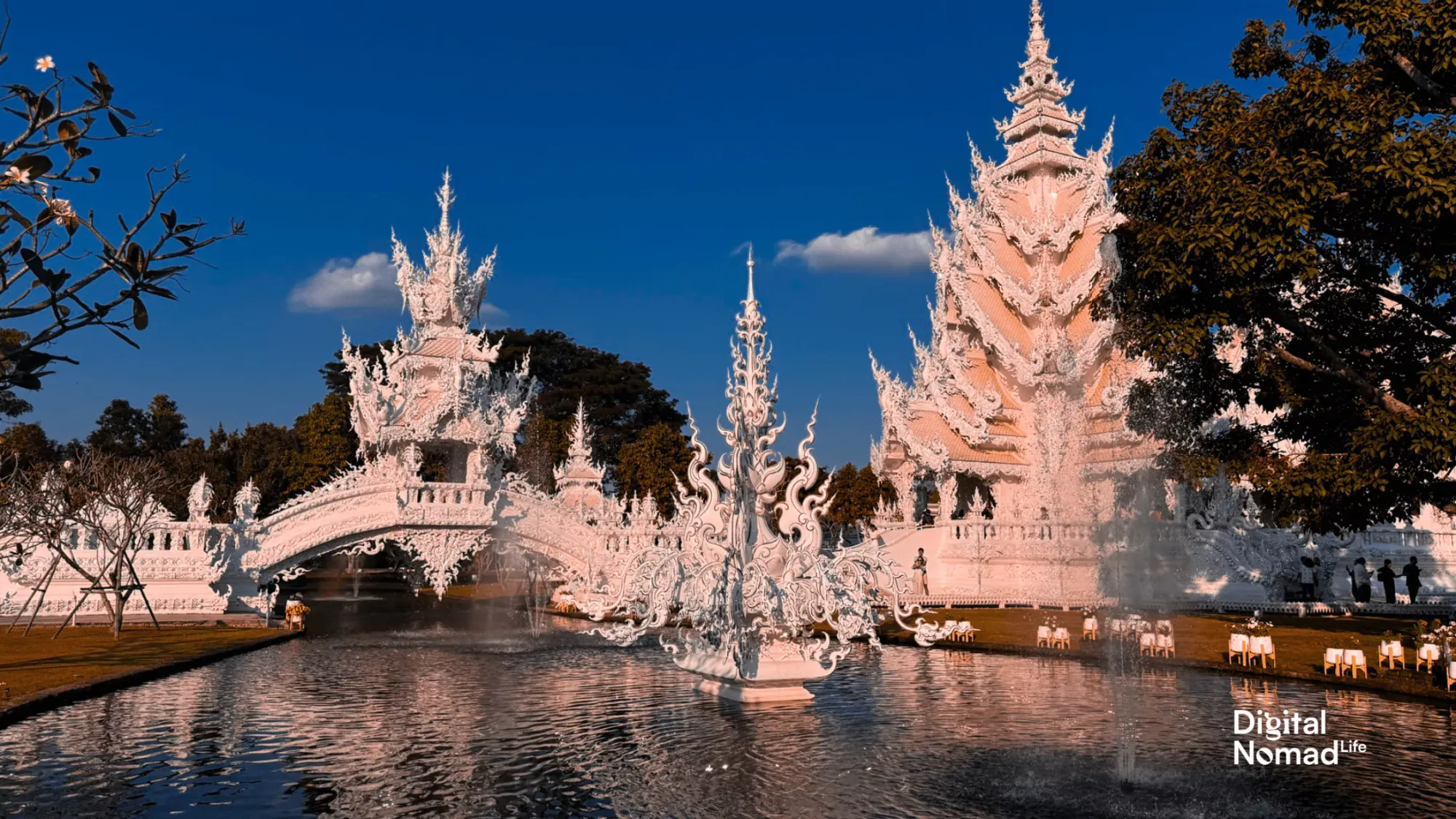
🏡 2. Where to Stay in Thailand
Thailand offers accommodation for every kind of traveler — from cozy budget guesthouses to stylish boutique hotels and co-living spaces designed for digital nomads. But where you stay depends a lot on the neighborhood you choose, especially in major cities like Bangkok, Chiang Mai, and the islands.
Here’s a breakdown of where to stay — and where in each city to look when booking on Airbnb or Booking.com. I personally prefer booking on Airbnb because of how well organized Airbnb operators are in Thailand. But I definitely check both platforms before making a final decision to get the best and most affordable deal for a place.
Bangkok is massive and diverse, so choosing the right neighbourhood can shape your whole experience:
Neighbourhoods in Bangkok
- Thonglor / Ekkamai – Trendy, upscale, and full of cool bars, coworking spaces, and restaurants.
- Sukhumvit – A hub for expats and travellers with everything from street food to malls. Areas near Asok and Phrom Phong are particularly well connected.
- Old Town (Rattanakosin) – Stay near the temples and riverside if you're into cultural sites and walkable sightseeing.
Neighbourhoods in Chiang Mai
Perfect for slow travelers and nomads:
- Nimmanhaemin (Nimman) – The hipster heart of Chiang Mai. Cafés, coworking spots, boutique hotels.
- Old City – Great for walking to temples, local food, and a laid-back vibe.
- Fa Ham – A peaceful residential area north of the Old City, ideal for long-stay travelers who want space, quieter surroundings, and proximity to places like Central Festival Mall. You'll find modern condos, affordable Airbnbs, and fewer tourists — making it great for focused work or creative retreats.
Neighbourhoods in Thai Islands
Each island has its own charm — and neighbourhoods within them too.
🏝️ Koh Phangan
- Sri Thanu – Spiritual, peaceful, great for yoga lovers and remote workers.
- Haad Rin – Party zone. Great for Full Moon Party-goers, but not for a quiet workcation.
- Thong Sala – The main port and a central, well-connected base.
🐠 Koh Tao
- Sairee Beach – Lively, social, with beach bars and dive schools.
- Ao Leuk – Quieter and perfect for couples or snorkeling fans.
🏖️ Koh Lanta
- Long Beach (Phra Ae) – Central, social, great sunsets.
- Kantiang Bay – Tranquil, scenic, and good for couples or focused solo stays.
🌆 Phuket
- Rawai / Nai Harn – Great for expats and quieter beach stays.
- Patong – Party-central, not recommended for long stays unless nightlife is your priority.
- Old Town – Beautiful colonial architecture and a local vibe.
Other Cultural Cities
🏛️ Ayutthaya
- Stay near the Historical Park if you want easy access to temples and cycling routes.
🏯 Sukhothai
- Book accommodations in New Sukhothai, then bike or tuk-tuk to the historical sites.
🐉 Chiang Rai
- Stay near the Clock Tower or Night Bazaar for walkable access to food and transport.
Booking Tips for Thailand
- Use Airbnb if you're planning a longer stay, especially in places like Chiang Mai or Koh Phangan where hosts cater to digital nomads.
- Use Booking.com to compare prices and read verified reviews — many listings offer flexible cancellations and “pay later” options.
- Look for accommodations with strong Wi-Fi, kitchen access, and weekly/monthly discounts if you're slow traveling.
💡 Pro Tip: Always check the reviews from other remote workers or long-stay travellers if you're planning to work from your accommodation.
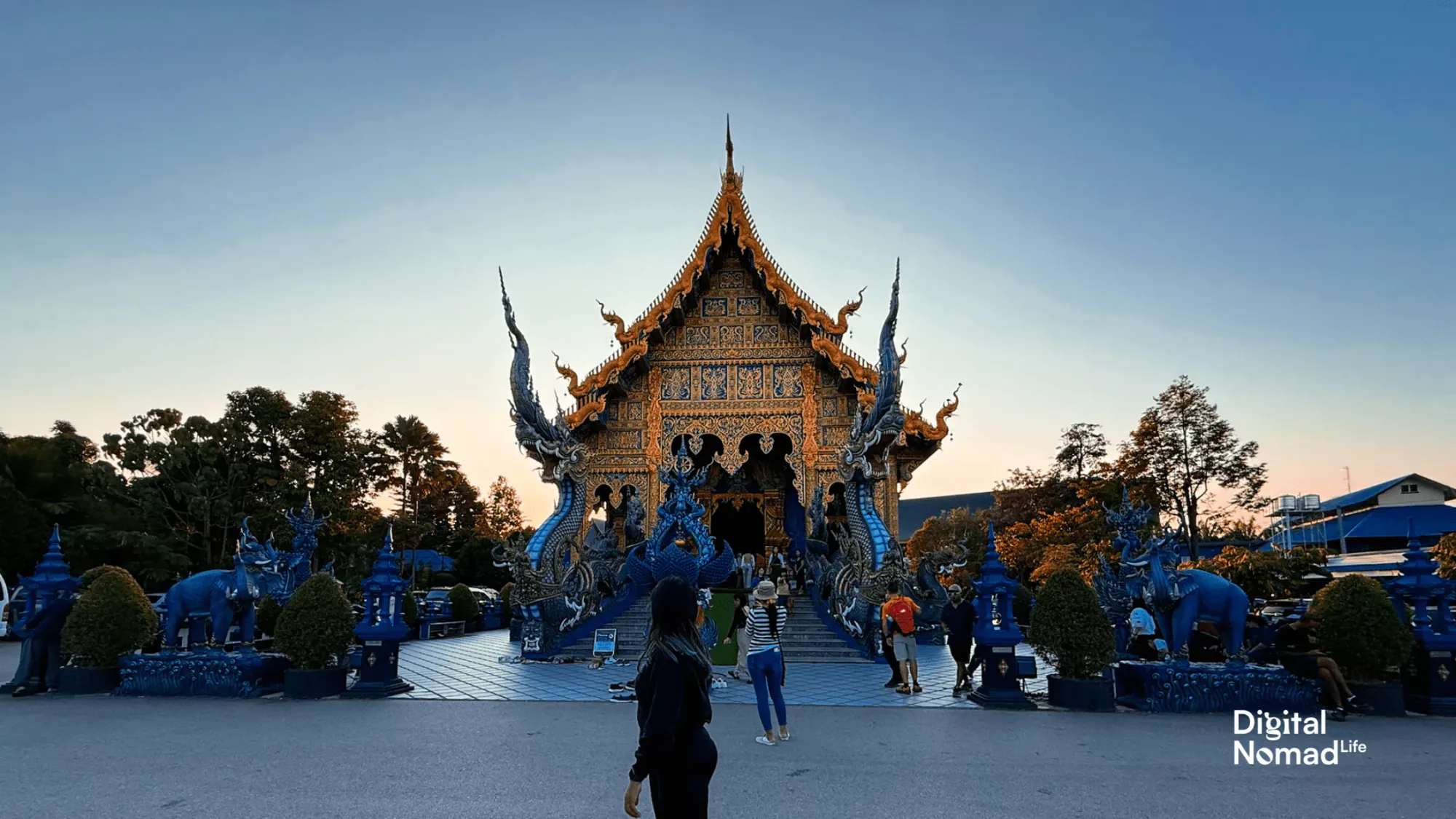
🍜 3. What to Eat in Thailand
Thai food is reason enough to visit. Here's what to try:
🥢Must-Try Dishes
- Pad Thai – The national classic
- Khao Soi – A northern coconut curry noodle soup
- Som Tam – Spicy green papaya salad
- Mango Sticky Rice – A sweet staple
- Thai Iced Tea – Cool and creamy perfection
🛍️ Where to Eat It
- Bangkok: Chatuchak Market, Chinatown street food
- Chiang Mai: Night Bazaar, Sunday Walking Street
- Islands: Beachfront BBQs and seafood grills
🌱 Vegan/Vegetarian Options
Thailand is veggie-friendly! Look for “jay” (เจ) signs or visit plant-based restaurants in major cities.
You can find Thailand food recommendations on this Instagram profile.
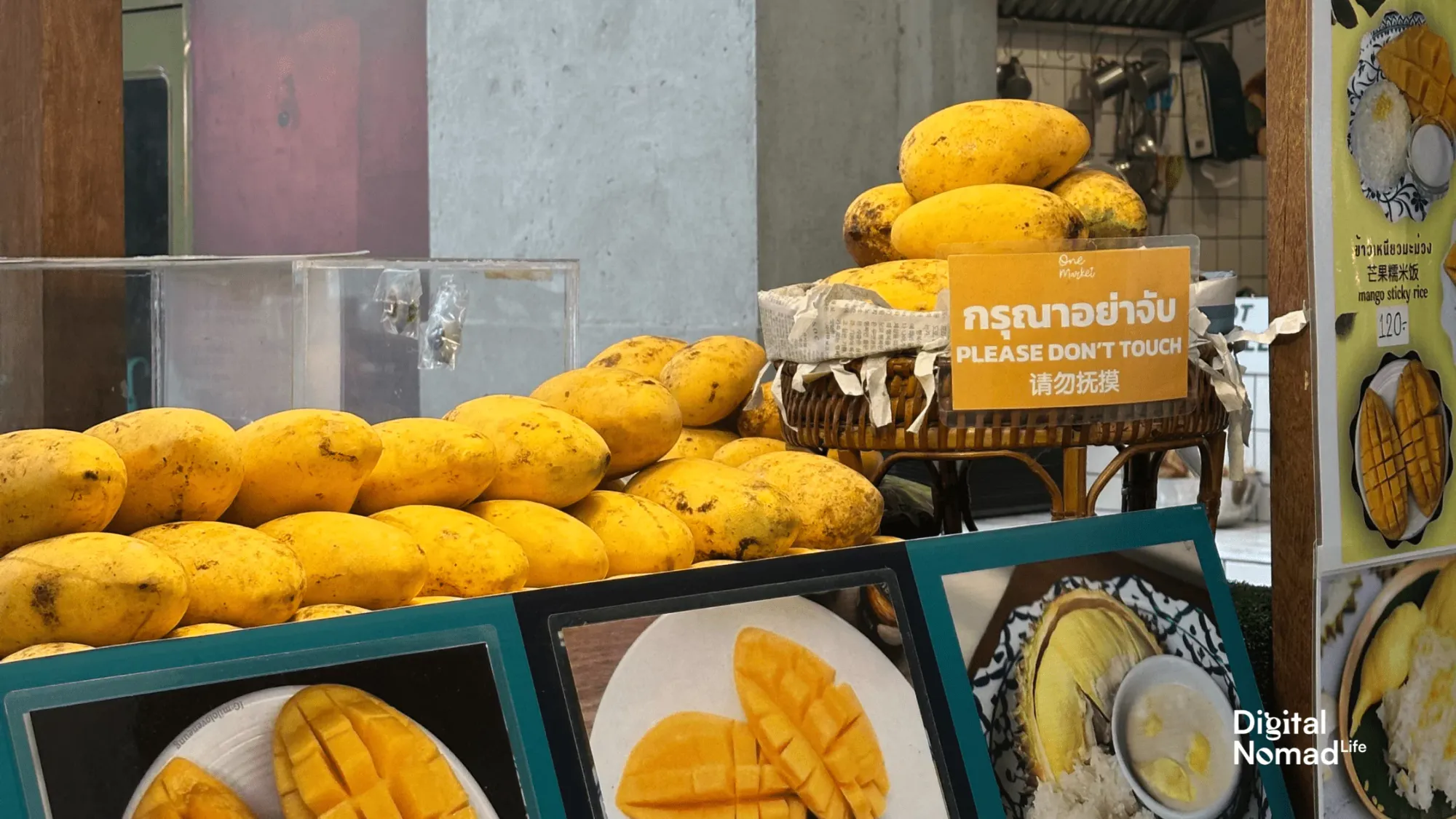
🚕 4. Getting Around Thailand
✈️ Domestic Flights
Budget airlines like AirAsia, and Thai Smile make flying between cities cheap and fast (1–1.5 hr flights).
🚂 Trains & Buses
- Scenic overnight trains (book 2nd class AC sleeper for comfort)
- VIP buses (comfortable and air-conditioned)
🛵 Scooters & Apps
- Rent scooters (~$5–8 USD/day) in most towns — always wear a helmet!
- Use Grab (Southeast Asia’s Uber) for taxis, food delivery & motorbike rides.
💡 Safety Tip: Only rent scooters if you’re confident driving. Police checks are common in Chiang Mai and islands.
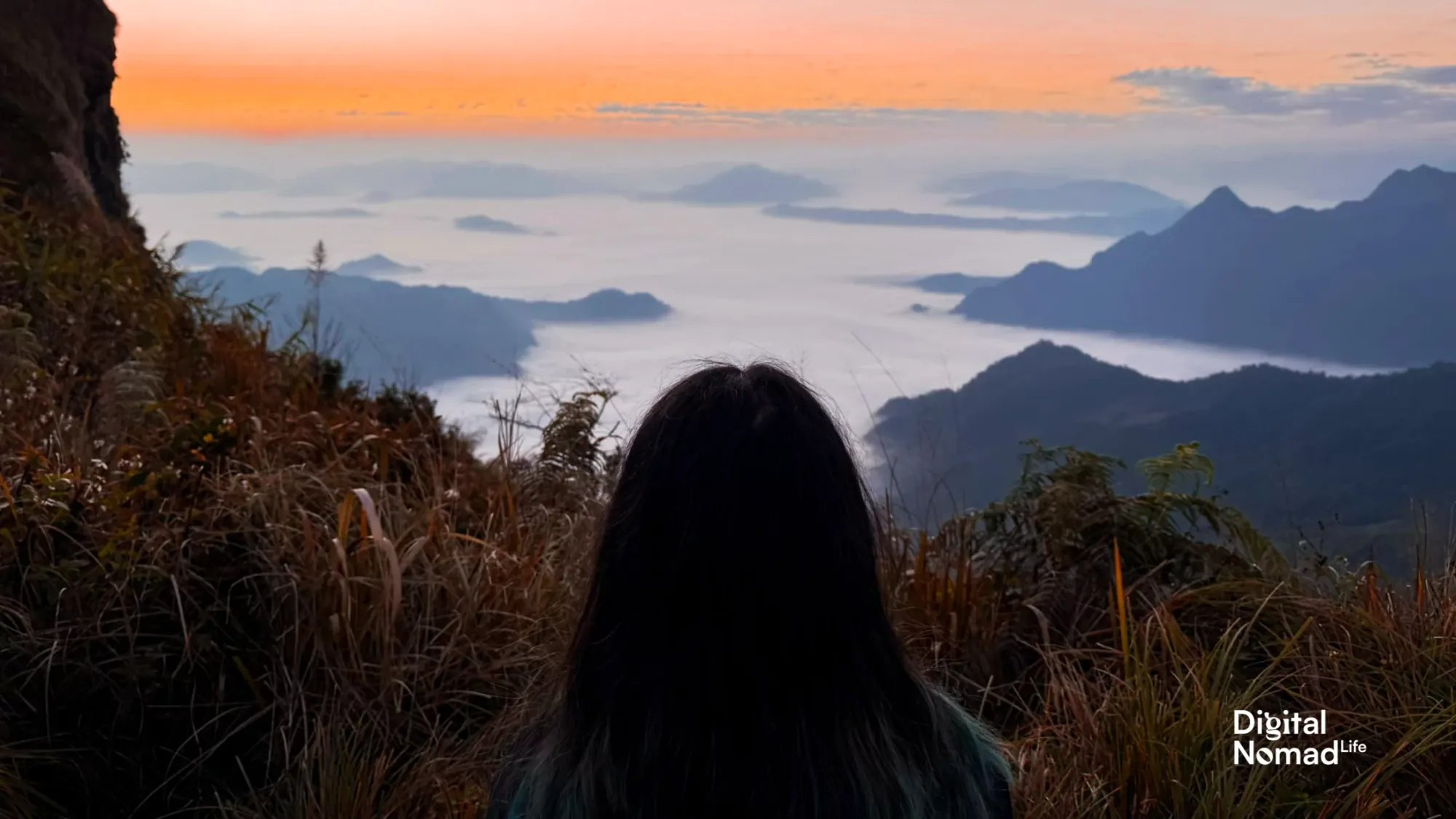
💻 5. Thailand for Digital Nomads
Thailand is one of the most nomad-friendly countries in the world. Here’s why:
🌍 Best Cities to Work Remotely
- Chiang Mai: The OG nomad hub — reliable Wi-Fi, cheap cafes, and dozens of coworking spaces
- Bangkok: Fast-paced city life, international crowd
- Koh Lanta / Koh Phangan: Work by the sea, perfect balance of focus + lifestyle
📶 SIM Cards & Wi-Fi
Get a DTAC or AIS tourist SIM at the airport (~$8–10 USD for 15–30GB). Wi-Fi is fast in most hotels, cafes, and coworking spaces.
🛂 Visa & Insurance
As of 2025, Thailand has introduced the Digital Nomad Visa (DTV) — an exciting option for remote workers, freelancers, and location-independent entrepreneurs looking to stay longer than the standard tourist visa allows.
This DTV visa allows eligible digital nomads to live and work from Thailand for up to one year, with the option to renew. It’s ideal if you plan to base yourself in places like Chiang Mai, Bangkok, or Koh Phangan while working remotely.
✍️ Who is it for?
- Remote workers earning stable income from abroad
- Freelancers or self-employed professionals
- Founders of digital businesses
📌 What You’ll Need:
- Proof of income (usually around $2,000/month or more)
- Valid passport and insurance coverage
- Application through the Thai consulate or e-visa platform
- Use providers like SafetyWing for travel/health coverage.
✅ Want to apply for DTV visa? Check out our detailed step-by-step blog here:
👉 How to Apply for the Thailand DTV Visa
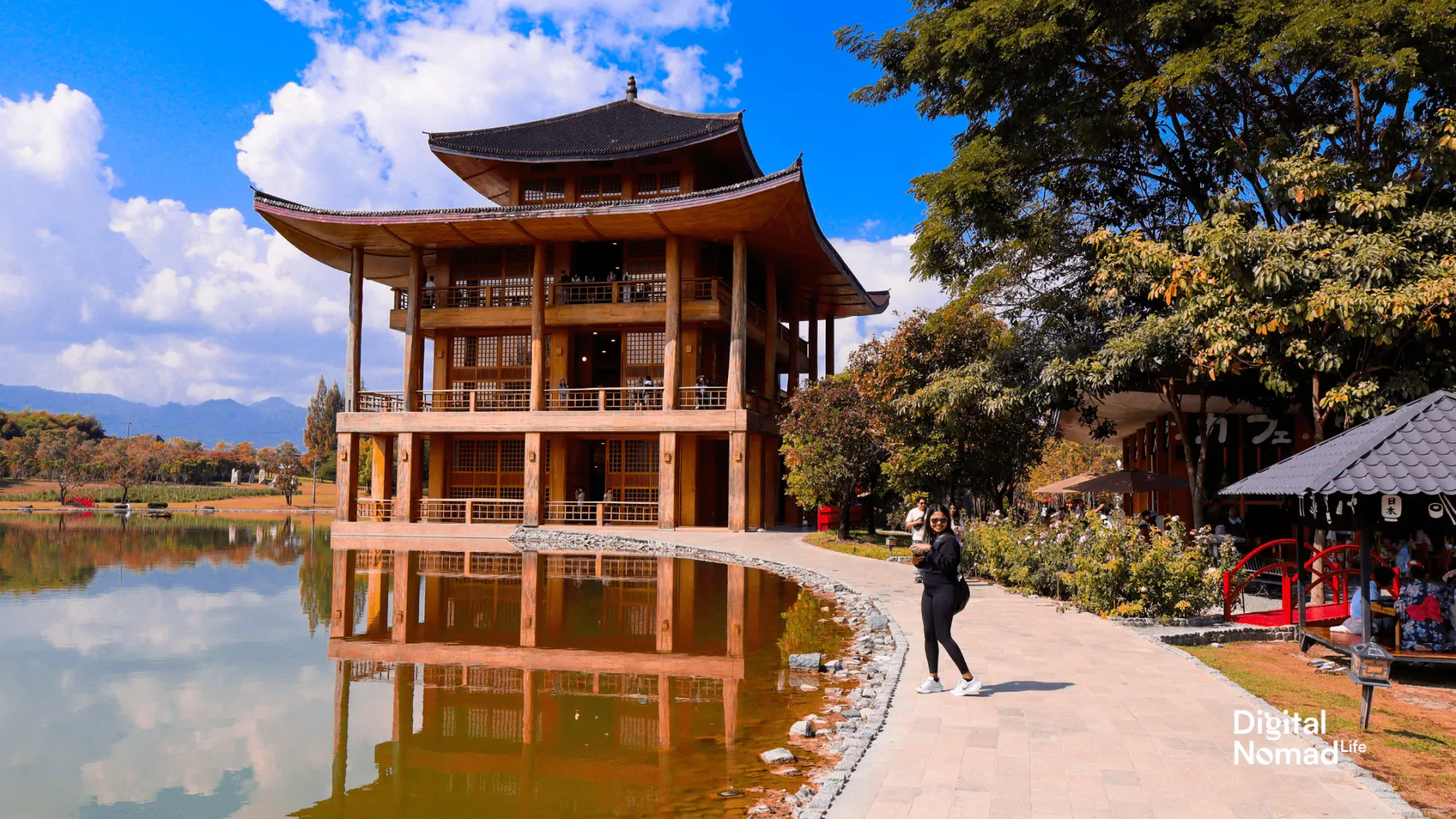
🧳 6. Packing Tips & Local Etiquette in Thailand
🧥 What to Pack for a Thailand Trip
- Lightweight, breathable clothes
- Sarong or scarf for temple visits (cover shoulders & knees)
- Swimsuit, sunscreen, flip-flops
- A power adapter (Type A/C sockets, 220V)
🙏 Thai Etiquette
- Greet with a wai (hands in prayer position)
- Don’t touch people’s heads (considered sacred)
- Always remove shoes when entering homes or temples
- Smile! It goes a long way in Thai culture 😊
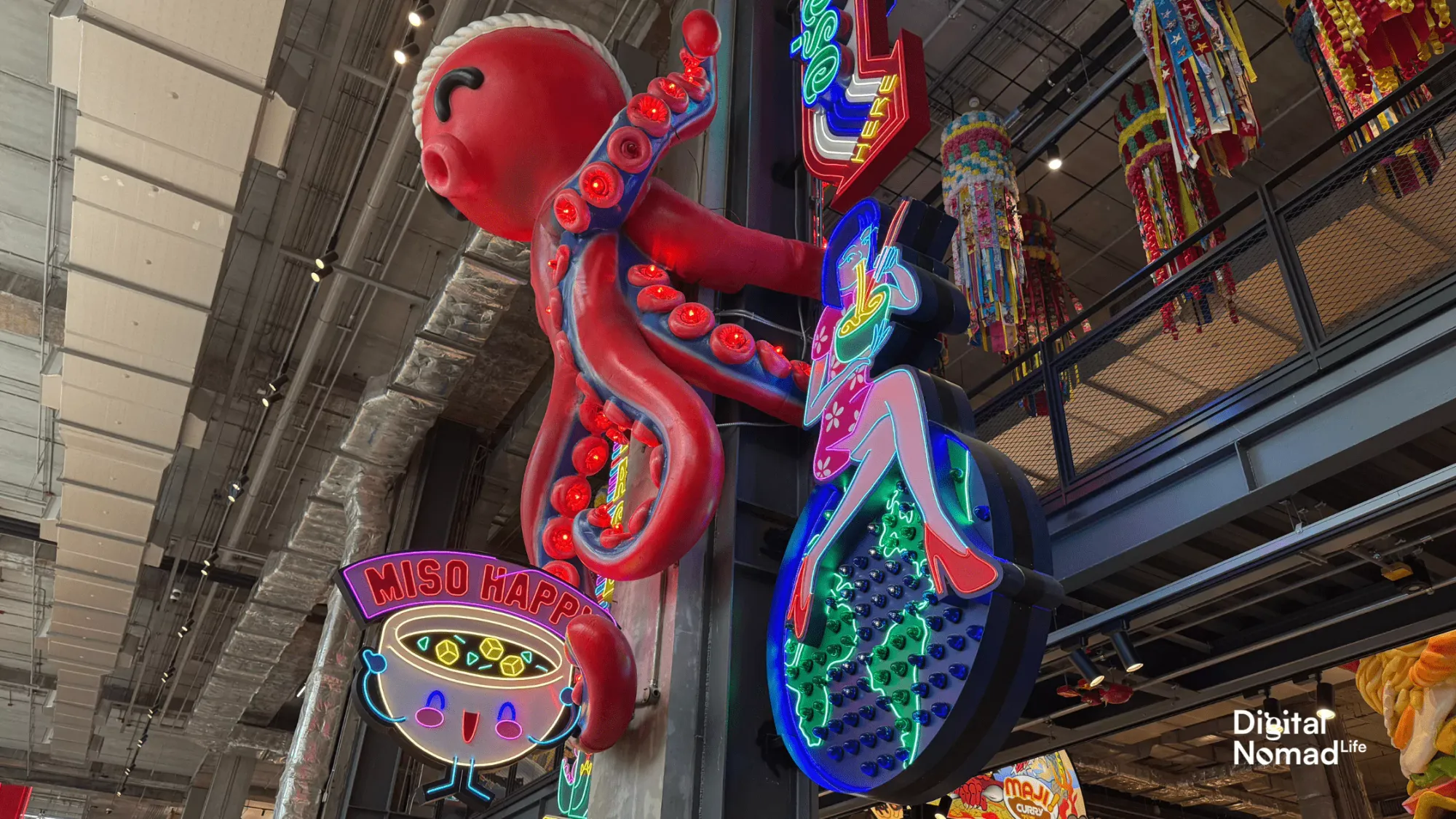
❓FAQ: Thailand Travel Tips for 2025
What is the best time to visit Thailand in 2025?
November to February — the dry, cool season is ideal for most destinations.
Do I need a visa to visit Thailand?
Many travelers can enter visa-free for 30 days. Longer stays may require a tourist or digital nomad visa — check the latest info.
Is Thailand safe for solo travelers?
Yes, it’s considered one of the safest countries in Southeast Asia. Exercise normal travel precautions and avoid isolated areas at night.
What’s the cost of travel in Thailand per day?
Budget: $30–50/day, Mid-range: $70–100/day, Luxury: $150+
Can I get by without speaking Thai?
Yes! English is widely spoken in tourist areas, though learning a few Thai phrases is appreciated.
What is the best website to book accommodation in Thailand?
For short-term stays, Booking.com offers a wide selection of hotels, guesthouses, and hostels with flexible cancellation options. For longer stays or digital nomad-style living, Airbnb is ideal, especially in places like Chiang Mai, Bangkok, and the islands.
Is it better to book accommodation in advance or on arrival?
In popular areas like Bangkok, Chiang Mai, and the islands, it's best to book in advance during high season (November to February). However, if you're flexible, you can often find deals on the ground — especially in shoulder or off-peak seasons. I book my peak season accommodation 3 months before I visit.
How much does accommodation cost in Thailand?
- Budget hostels & guesthouses: $8–$20 USD per night
- Mid-range hotels & boutique stays: $30–$70 USD per night
- Long-stay Airbnbs or serviced apartments: $300–$800 USD/month, depending on location and amenities
What are the best areas to stay in Bangkok for first-time visitors?
Sukhumvit (Asok, Phrom Phong) is central and connected. Ari offers a quieter, trendy vibe. Old Town is great for cultural sightseeing, while Thonglor/ Ekkamai is ideal for foodies and nightlife.

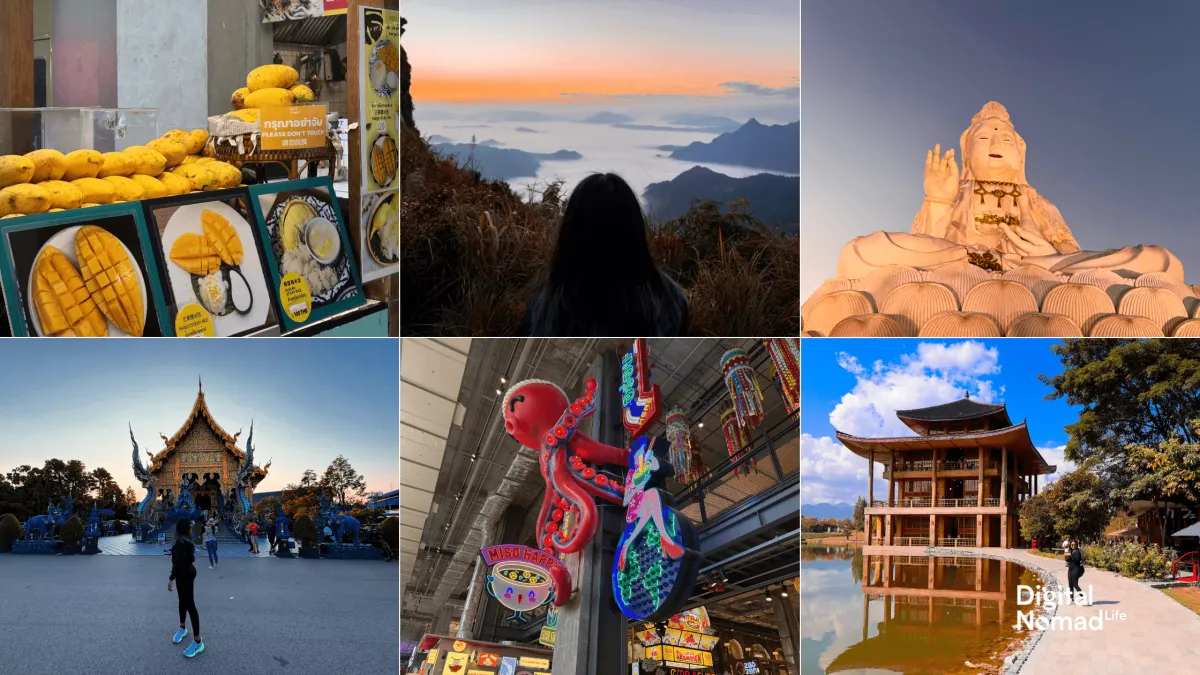
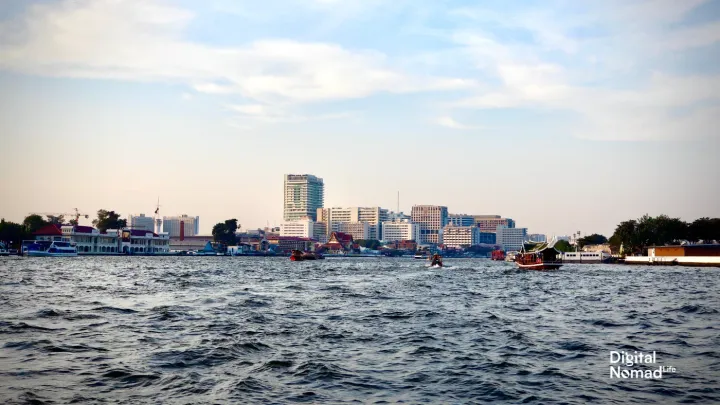
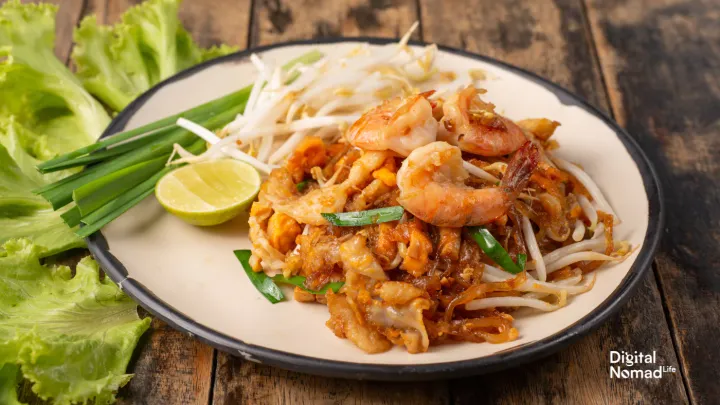
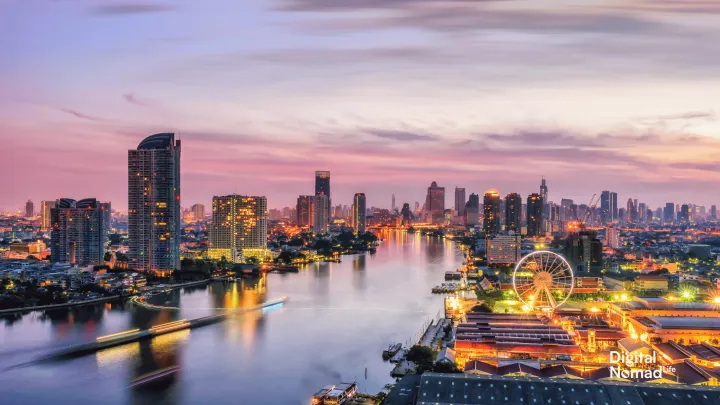
Comments ()